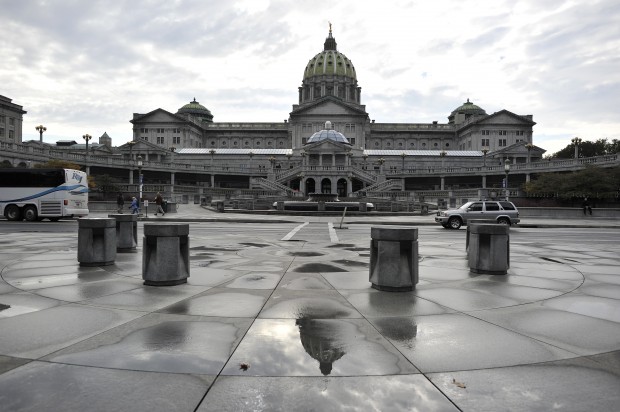When It Comes To An Impact Fee, It’s A House (Caucus) Divided
-
Scott Detrow
Until now, House Republicans have been largely mute, in the debate over whether or not to impose an impact fee on natural gas drillers. There are a few dynamics behind that silence: first and foremost, Majority Leader Mike Turzai and other House GOP leaders simply have other non-Shale priorities, namely privatizing state-owned liquor stores.
A new column from Capitolwire’s Pete DeCoursey highlights another explanation: Republicans are simply divided over how large – or small – of a levy they want to enact, and whether or not it should stay on the county level, or be collected by the state.
Because for the 50 to 60 House GOP members who live in or near shale territory, and might vote for a bill, the Murt/DiGirolamo proposal is way too hot, meaning expensive, for them.
But for eastern members, the Corbett $50-million-or-so plan – with nothing for their districts – is way too cold.
Without 80 to 90 House GOP votes, the Democrats will demand a big fee/tax bill that will knock down the GOP votes for the bill to three-dozen or so.
Also, it is not clear where that third bowl of porridge, the one that all the Goldilockses will think is just right, is: Is it at $200 million a year? $150 million? $300 million?
Senate Republican and Democratic leaders believe the $200 million to $250 million range is where the bill should come in.
But that is too rich for many House shale Republicans, and short of what many eastern GOPers and shale Democrats want to vote for.
House GOP leaders want to stick to a Corbett-style plan, at least initially when they get something past the House for step one, then generate serious negotiations with the governor and Senate.
But they need more money and will either earmark $100 million or so from fee proceeds or future shale royalties on already-leased state land to pay for the environmental programs favored by non-Shale lawmakers, including farmland, parkland and forest preservation, and Growing Greener, The Next Generation.
It’s been several weeks since Corbett rolled out his impact fee proposal. We’re expecting to see the governor’s plans in actual bill form next week.

















